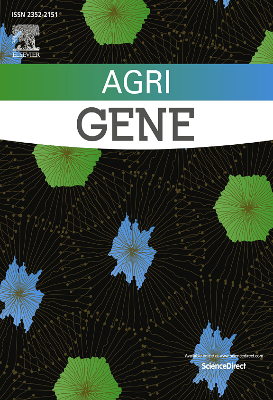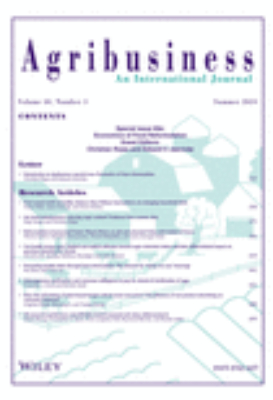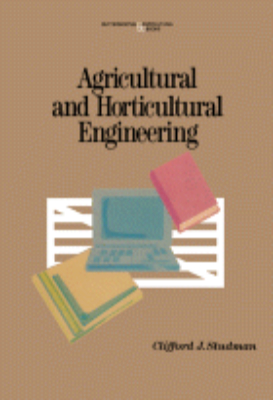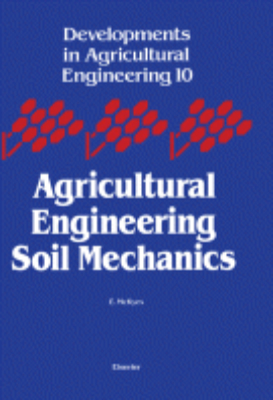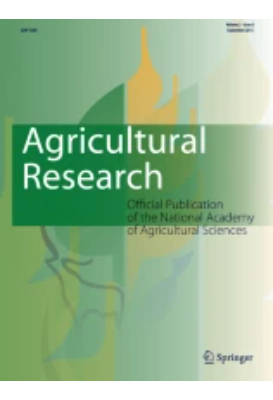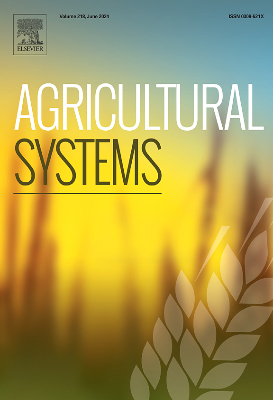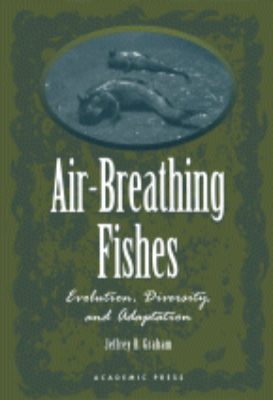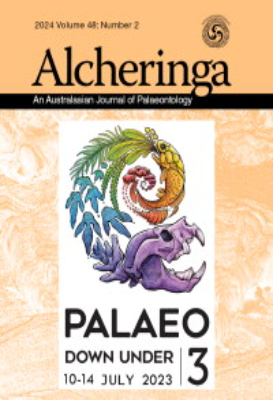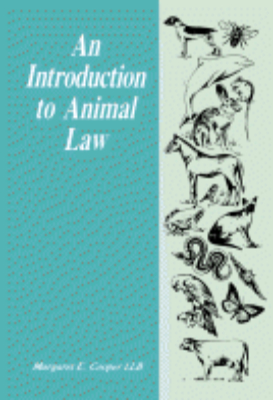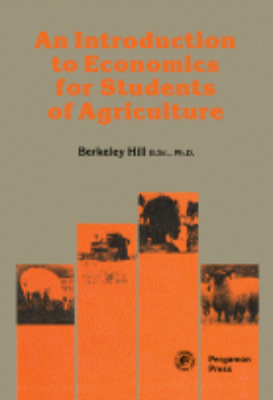Agricultural Science
Agricultural and Horticultural Engineering
Agricultural and Horticultural Engineering: Principles, Models, Systems, and Techniques focuses on the developments in agriculture and horticulture, including the role of engineers in employing measures in the management of plants, animals, and machinery. The book first offers information on the process of surveying, including tape, compass, and aerial surveying, leveling, barometric leveling with the aneroid, plane tabling, and electronic distance measurement and electronic total. The text then takes a look at models of the environment, material properties, and the relationship between stress and strain. The publication examines workshop methods and hydraulics. Topics include soldering, electric arc welding, low temperature brazing, welding using oxygen-acetylene apparatus, hydrodynamics, and water supply requirements. The text also reviews electricity and electronics and power and thermal systems, as well as alternating voltage supplies, electrical motors, electrical safety, power and energy consumption, and the fundamental principles of electronics. The manuscript is a dependable reference for engineers and readers interested in agricultural and horticultural engineering.
Agricultural Economics Research Review
Focus and Scope The Journal regularly publishes refereed research articles, reviews, research notes and communications of high impact in basic and applied research on economic and policy aspects of agriculture and rural development. Comprehensive review articles in the area of agricultural economics (including livestock, horticulture and fisheries), conference/symposia proceedings and book reviews are also published in the Journal. To encourage the young researchers, recent abstracts of M.Sc. and Ph.D. theses in agricultural economics and policy research are also published. Peer Review Process Preliminary Scrutiny The Journal has a Preliminary Review Committee comprising Members of Editorial Board and Executive Committee, which makes preliminary evaluation of the merits of a paper in terms of sending to a referee or rejection at the preliminary stage itself. Open Access Policy This journal provides immediate open access to its content on the principle that making research freely available to the public supports a greater global exchange of knowledge. Sponsors Indian Council of Agricultural Research Journal History The journal Agricultural Economics Research Review is being published regularly since 1988.
Agricultural Statistics
Agricultural Statistics: A Handbook for Developing Countries presents the development of agricultural statistics in various countries of Africa and Asia. This book provides a guideline to those in charge of agricultural statistics in developing countries to know their priorities and to have clear objectives. Organized into 14 chapters, this book begins with an overview of the importance of regular collection of agricultural statistics to the functioning of the community as well as for its agriculture and agricultural development. This text then examines the improvement of methods of collection of existing statistics for greater dependability. Other chapters consider the yield rates and areas of crop production. This book discusses as well the direct estimation of production, which consists of large estates with their processing plants meant for processing their products only. The final chapter deals with the various organizational set-ups for the compilation of agricultural statistics. This book is a valuable resource for agriculturists and statisticians.
Agricultural Sustainability
Collaboratively written by top international experts and established scientists in various fields of agricultural research, this book focuses on the state of food production and sustainability; the problems with degradation of valuable sources of land, water, and air and their effects on food crops; the increasing demand of food resources; and the challenges of food security worldwide. The book provides cutting edge scientific tools and methods of research as well as solid background information that is accessible for those who have a strong interest in agricultural research and development and want to learn more on the challenges facing the global agricultural production systems.
Agrochemicals in Soils
Agrochemicals in Soils contains selected papers from a joint meeting of the Soil Chemistry, Soil Fertility, and Soil Clay Mineralogy Commissions of the International Society of Soil Science, in Jerusalem, Israel. The book is organized into four parts. Parts 1 and 2 deal mostly with the chemical reactions of agrochemicals in the soil. Part 3 explores the movement of agrochemicals in the soil and Part 4 elucidates some aspects of agrochemicals and pollution. Each section begins by one or two invited papers presenting an overview of the topic of the section. Contributed papers follow reporting the results of experimental studies and theoretical analyses of related specific topics. This book will contribute to a better understanding and efficient control of the soil environment.
Air-Breathing Fishes
"Air Breathing Fishes: Evolution, Diversity, and Adaptation is unique in its coverage of the evolution of air-breathing, incongruously because it focuses exclusively on fish. This important and fascinating book, containing nine chapters that present the life history, ecology, and physiology of many air-breathing fishes, provides an exceptional overview of air-breathing biology.Each chapter provides a historical background, details the present status of knowledge in the field, and defines the questions needing attention in future research. Thoroughly referenced, containing more than 1,000 citations, and well documented with figures and tables, Air-Breathing Fishes is comprehensive in its coverage and will certainly have wide appeal. Researchers in vertebrate biology, paleontology, ichthyology, vertebrate evolution, natural history, comparative physiology, anatomy and many other fields will find something new and intriguing in Air-Breathing Fishes. Key Features. Offers a complete overview of an important and immensely interesting area of research. Provides a perspective of air-breathing fish that spans 300 million years of vertebrate evolution. Contains numerous illustrations as well as comprehensive charts. Provides a synoptic treatment of all the known air-breathing species with important data on their morphological and physiological adaptations"
An Atlas of Surgical Approaches to the Bones and Joints of the Dog and Cat
This well-illustrated atlas provides detailed coverage of the surgical anatomy of the skeletal system of dogs and cats. It's a great learning and teaching tool for small animal surgery that contains highly detailed and clearly labeled drawings of bones and joints. The comprehensive coverage and vivid detail allow surgeons to explore a variety of approaches to fit each unique clinical situation.
An Introduction to Animal Law
Legislation relating to animals has ancient origins and in many civilizations certain species have held particular significance, be it religious, cultural, nutritional, or sporting. As a general rule, the law was primarily concerned with animals as property, rather than in need of protection, until the 19th century. Since the 1970s animal law has proved to be a growth area in the production and enforcement of both national and international legislation. This has been particularly so in the areas of conservation and welfare and there has been extensive legal and philosophical consideration of the status of animals.This book is not intended to be a standard text, but rather a handbook in the true sense, a guide for the lay person--namely, to help the non-lawyer to understand the basic concepts of animal law and to provide the lawyer (who is the lay person in the world of animal science) with an introduction to relevant concepts and literature which are not normally found in the conventional legal texts.
An Introduction to Economics for Students of Agriculture
The Introduction to Economics for Students of Agriculture describes the universal economic principles, illustrated primarily by examples drawn from farming and the food industry. This book is composed of nine chapters, and begins with what an overview of the concepts of economics, its objective, with a particular emphasis on the mechanism of allocating scarce resources. The succeeding chapters deal with the behavior of individual through the theory of consumer choice, the concept of demand and supply, market competitions, and production economics. These topics are followed by discussions on the mobility of the factors of production and unemployment, and some problems of using the market as a resource allocator. This book will prove useful to economists, agriculturists, and students.
An Introduction to Field Quantization
An Introduction to Field Quantization is an introductory discussion of field quantization and problems closely related to it. Field quantization establishes a commutation relation of the field and finds an operator in such a manner that the Heisenberg equation of motion is satisfied. This book contains eight chapters and begins with a review of the quantization of the Schroedinger field and the close relation between quantized field theory and the many-body theory in quantum mechanics. These topics are followed by discussions of the quantization of the radiation field and the field of lattice vibrations in a solid. The succeeding chapter deals with the familiar linear equations in relativistic field theory and the deduction of certain spin independent theories, which these fields have in common. Other chapter explores the derivation technique of the conservation laws for fields with arbitrary spin directly from the field equations without explicit recourse to Noether's theorem using a configuration space version of the generalized Ward identity. The discussion then shifts to the relativistic quantization method applicable to any field with arbitrary spin; the transformation of various fields under the Lorentz transformation; and a general method for constructing wave functions explicitly, as well as the application of this method to several examples. The concluding chapter focuses on the quantization of interacting fields. This book will prove useful to physicists and researchers.
Anaesthesia of Exotic Pets
Anaesthesia of Exotic Pets provides a unique and quick reference guide for all those working in veterinary practice. The book covers the common species seen and includes: the basic approach to the case, equipment required, drug doses, and anaesthetic induction and maintenance as well as anaesthetic monitoring techniques. Peri-anaesthetic nursing care, such as husbandry, fluid and nutritional support, is discussed for each species. Written by experienced practitioners, the book provides a common sense and practical approach to anaesthesia to enable a variety of techniques to be performed confidently.
Analysis of Growth: Behavior of Plants and their Organs
Plant Physiology, Volume VA: Analysis of Growth: Behavior of Plants and their Organs describes the main events of growth as seen through the behavior of plants and their organs at an organismal level. This book discusses the quantitative interpretation of growth; the effects of environmental factors; the treatment of tropism; and the effects of many exogenous growth-regulating compounds. Organized into five chapters, the book initially describes mathematically the plant growth mechanisms as they relate to the factors that determine morphogenesis. The text also discusses methods for assessing the effects of external conditions and of age on certain important physiological aspects of plant growth. The subsequent chapter deals with phyllotaxis as a selected aspect of the interpretation of growth and form. The third chapter describes various phototropically and geotropically sensitive systems impinge upon on plant growth. This chapter also covers some reversible nastic movements of organs and the tactic movements of free swimming cells. The next chapter deals with relations between the chemical structure of synthetic compounds and their biological action. The last chapter focuses on the modulation of growth and development by features of the environment and also upon experimental manipulation and under controlled conditions of growth. This volume is an invaluable resource for plant biologists, physiologists, and researchers.

